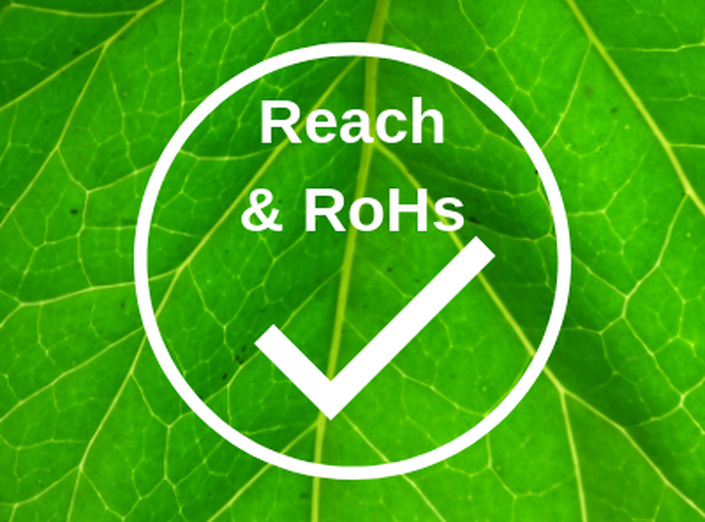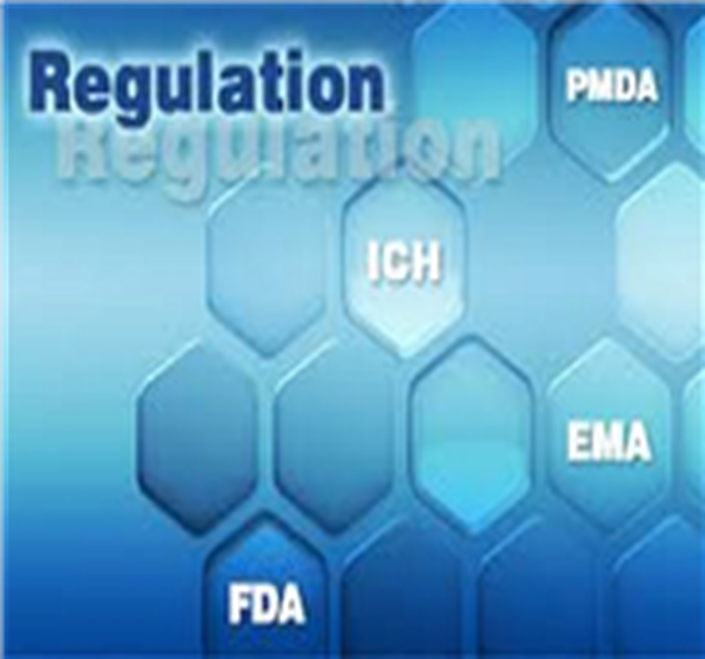FDA Compliance & Clinical Trial Computer System Validation (CSV) Training
Ensuring Data Integrity & Regulatory Readiness
MP3 Download / On Demand
2 Day Training Online
Click to download Course Brochure
FDA Compliance & Clinical Trial Computer System Validation (CSV) Course Description
The FDA governs the computer systems used to collect, analyze, transfer and report data that is in support of human clinical trials required for drug approval. FDA oversight is based on a Predicate Rule, known as "Good Clinical Practices," or simply, "GCPs."
Computer systems subject to GCP requirements must be thoroughly and appropriately validated in accordance with FDA's guidance on computer system validation. This involves a rigorous set of phases and steps to ensure that, in the language of FDA, "a system does what it purports to do."
The cost of adequately validating a clinical trial computer system can be high, and must be weighed against system risk and usage. GAMP 5 system classification guidelines can help ensure that a clinical trial system is categorized appropriately, based on the type of system and technology involved. Along with risk, system classification can provide a clear-cut pathway for validating a system, based on the appropriate level of testing and validation effort.
In this two day Virtual Seminar you will learn about FDA's expectations for classifying, assessing the risk, testing, and validating a computer system used in clinical trial work. You will learn in detail about the System Development Life Cycle (SDLC) methodology used to approach Computer System Validation (CSV), including all of the phases, sequencing of events, deliverables, and documentation requirements.
All types of clinical trial systems will be discussed, including in-house developed code, configurable systems and custom designed systems. Best industry practices and potential pitfalls in validating clinical trial systems, along with examples, will be covered in detail.
Ongoing maintenance of the system in a validated state will be discussed, as well as governance, archival and retirement.
We will also discuss the importance of applying good project management, business process re-engineering and organizational change management principles through the validation process and beyond..
Learning Objectives
Upon completing this course participants should:
- Understand FDA requirements for clinical trial Computer System Validation (CSV)
- Understand the System Development Life Cycle (SDLC) approach to validation
- Utilize GAMP 5 system classification and risk methodologies for categorizing systems and developing a validation pathway
- Understand how to build a complete validation strategy and program for clinical trial systems
- Know how to manage the validation process and create FDA-compliant documentation
- Know how to monitor a clinical trial system that is in production, governing the data and system through retirement
- Understand the roles and responsibilities required to validate a clinical trial system
- Know how to measure cost vs. compliance risk for a clinical trial system
- Understand good project management principles, incorporating business process re-engineering and organizational change management into the process
- Know the policies and procedures that must be developed and maintained to support the clinical trial system in operation
- Understand how to leverage the vendor and other external resources to apply the best industry practices and avoid potential pitfalls when validating a clinical trial system
- Know about FDA trends in oversight and audit of clinical trial systems and how to keep abreast of these
Agenda
DAY 01(12:00 PM - 5:00 PM EST)
- Session Start Time: 11:00 AM
- FDA oversight of computer systems used in regulated industries
- “GxPs” defined
- Focus on “GCPs”
- FDA audit and inspection objectives
- Company compliance objectives
- Introduction to Clinical Data Systems (CDS)
- Defining the types of systems
- System evaluation, scoring and selection process overview
- Discussion of industry trends in system usage
- Introduction to Computer System Validation (CSV)
- FDA’s Guidance for Computerized System Validation (1983)
- Evolution of validation
- 21 CFR Part 11 (electronic records/electronic signatures; 1987)
- Industries (pharmaceutical, medical device, biotechnology, tobacco, organ donation)
- System Development Life Cycle (SDLC) framework and validation
- SDLC phases (requirements, design, testing, implementation, acceptance, release to production, change control, retirement)
- SDLC deliverables, timing, and documentation
- The Requirements Traceability Matrix (RTM) – a key validation deliverable of interest to FDA
- GAMP 5 and system classification
- GAMP 5 system categories and criteria
- Using GAMP 5 to develop an approach to CSV for a clinical data system
- Evolving technology – driving a mobile application across a data lake and into the cloud
- System risk assessment and management
- Clinical data system inventory
- Risk assessment, mitigation and prioritization
- Monitoring and managing system risk throughout a clinical data system’s SDLC
- Lunch Break
- Building a solid project management plan to corral a clinical data system validation effort
- Validation strategy and planning
- Clinical data system implementation and validation execution
- Validation documentation
- System and data “owners” and “custodians”
- Roles and responsibilities
- Leveraging the vendor or other external resource
- Incorporating business process re-engineering principles into the clinical data system validation effort
- Clinical process mapping
- Seeking opportunities for improvement
- Building improvement into the project plan
- Incorporating Organizational Change Management (OCM) principles into the clinical data system validation effort
- Assessing the organization’s “appetite” for change
- Identifying “early adopters,” “laggards,” and “resisters”
- Effecting long-lasting change
DAY 02 (12:00 PM - 5:00 PM EST)
- Example – implementing and validating a clinical data system
- Situation overview
- Building a strategy
- Managing the project using the CSV principles, SDLC methodology and good project management practices
- SDLC phases, deliverables and templates
- Incorporating BPR and OCM practices
- Focus on testing as key area of FDA scrutiny
- Wrapping up the documentation package
- Clinical data system acceptance and release
- Policies and procedures
- Training – timing and best approach
- Turnover to support
- Ongoing validation maintenance
- System retirement and data archival
- Lunch Break
- Ongoing monitoring and management of a clinical data system in a validated state throughout the SDLC
- Operations and maintenance
- System and data backup and archival
- Change control board and best practices (high on FDA’s list for scrutiny)
- Periodic review and assessment for revalidation
- Policies and procedures (IT and user)
- Ongoing training and OCM
- Disaster Recovery (DR) planning and execution
- Business Continuity Planning (BCP) and execution
- System and Data Governance Board
- Board Charter
- Sponsorship
- Roles and responsibilities
- Meetings and status reporting
- FDA’s strategy and direction – the “swinging pendulum”
- Recent trends in FDA findings related to clinical data systems
- Factors influencing FDA audit and inspection
- What does the future look like?
- Wrap-up/ Q&A
Who Will Benefit
This seminar is intended for those working in the FDA-regulated industries, including pharmaceutical, medical device, biological, animal health, organ donation and tobacco. Functions that are applicable include research and development, clinical sample manufacturing, packaging, labeling and distribution, clinical testing and management, adverse events management and post-marketing surveillance.
You should attend this seminar if you are responsible for planning, executing or managing the implementation of any clinical trial system governed by FDA regulations, or if you are maintaining or supporting such a system. Examples of who will benefit from this seminar include:
- Data “Owners”
- Data “Stewards”
- Information Technology Analysts
- Information Technology Developers and Testers
- QC/QA Managers and Analysts
- Clinical Data Managers and Scientists
- Analytical Chemists
- Compliance and Audit Managers
- Laboratory Managers
- Automation Analysts
- Computer System Validation Specialists
- GMP Training Specialists
- Business Stakeholders/Subject Matter Experts
- Business System/Application Testers
This seminar will also benefit any consultants working in the life sciences industry who are involved in computer system implementation, validation and compliance.

Faculty Carolyn Troiano
Award winning FDA Compliance Expert for Validation, 21 CFR Part 11 (Electronic Records/Signatures) and Data Integrity.
My experience includes 40+ years in IT/ Business, Marketing & Compliance leadership and management roles at a variety of Fortune 100 companies, across multiple industries.
My successes include building and managing teams and business units at multiple “greenfield” sites in the pharmaceutical, biotechnology and IT consulting industries, as well as in the public sector. I have weathered numerous layoffs, mergers and acquisitions, and demonstrated my very strong leadership skills in helping staff get through difficult times.
Ms. Troiano has specific expertise in Computer System Validation (CSV), 21 CFR Part 11, FDA’s Guidance on Electronic Records and Electronic Signatures (ER/ES), and Data Integrity. She received her MBA from Rutgers University and a BS in Toxicology from St. John’s University.





